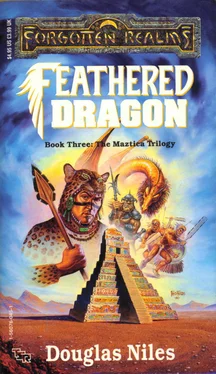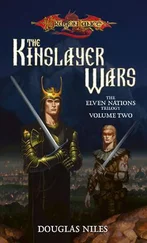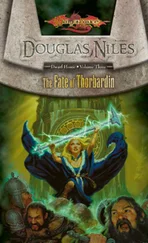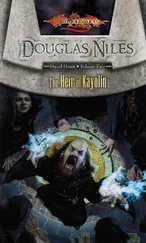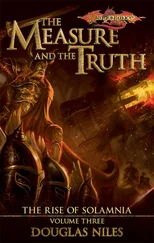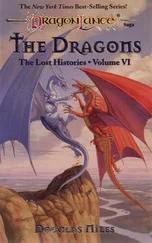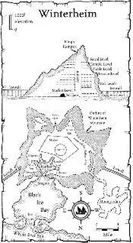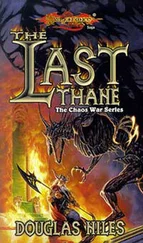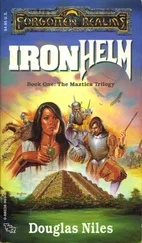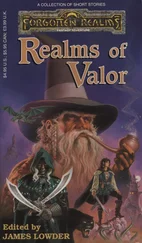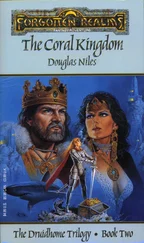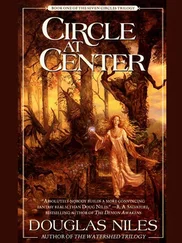Douglas Niles - Feathered Dragon
Здесь есть возможность читать онлайн «Douglas Niles - Feathered Dragon» весь текст электронной книги совершенно бесплатно (целиком полную версию без сокращений). В некоторых случаях можно слушать аудио, скачать через торрент в формате fb2 и присутствует краткое содержание. Жанр: Фэнтези, на английском языке. Описание произведения, (предисловие) а так же отзывы посетителей доступны на портале библиотеки ЛибКат.
- Название:Feathered Dragon
- Автор:
- Жанр:
- Год:неизвестен
- ISBN:нет данных
- Рейтинг книги:3 / 5. Голосов: 1
-
Избранное:Добавить в избранное
- Отзывы:
-
Ваша оценка:
- 60
- 1
- 2
- 3
- 4
- 5
Feathered Dragon: краткое содержание, описание и аннотация
Предлагаем к чтению аннотацию, описание, краткое содержание или предисловие (зависит от того, что написал сам автор книги «Feathered Dragon»). Если вы не нашли необходимую информацию о книге — напишите в комментариях, мы постараемся отыскать её.
Feathered Dragon — читать онлайн бесплатно полную книгу (весь текст) целиком
Ниже представлен текст книги, разбитый по страницам. Система сохранения места последней прочитанной страницы, позволяет с удобством читать онлайн бесплатно книгу «Feathered Dragon», без необходимости каждый раз заново искать на чём Вы остановились. Поставьте закладку, и сможете в любой момент перейти на страницу, на которой закончили чтение.
Интервал:
Закладка:
Douglas Niles
Feathered Dragon
PROLOGUE
From the chronicles of Coton:
At the time immediately preceding the great God War, when Qotal and his sisters battled Zaltec and his brothers for mastery of the True World, the gods commanded their worshipers to build them a temple greater than any other in the world, in a place from which the gods could rule their lands in sublime solitude.
The gods selected a wasteland, a dry valley in the heart of the deepest desert, and here they commanded the people to come. The humans obeyed their immortal lords, and the gods gave them food to eat and water to drink, that they would not perish. And they gave to the people their commands, and again the people obeyed.
The humans built the grandest pyramid of all in the center of the place called Tewahca, the City of the Gods. For decades they toiled, carving a wonder from the wasteland, raising their children, living and dying in this place selected by Zaltec and Qotal.
The structure towered skyward, as big as a mountain. The temple building, a massive stone rectangle atop the highest platform, loomed huge enough to house the gods themselves. The greatest of artisans came from all over Maztica to work their pluma and hishna magic upon the pyramid, to paint it with brilliant colors and bright mosaics.
Around the pyramid, a city sprang to life. Humans built streets and plazas, wide courtyards and lush gardens. They built for themselves houses and palaces, struggling to make the structures worthy of the blessed locale. Yet all these constructions served as mere adornments to the true center of Tewahca, the pyramid of the gods.
Finally the Pyramid of Tewahca was completed. The gods commanded the humans to go, and the waters dried away. The food that grew here withered and died, leaving once more the barren waste of sand and stone. The great city stood like a firm, dry husk in the center of nothing.
The humans had no way to live here now, so they fled to more fertile lands.
And the war between the gods began.
1
A great gulf of ether separates the planes, the dwelling places of gods and mortals. Billowing outward, murky and obscure, the ethereal mist settles and seethes like a vast, cosmic cloud bank. It fills the space between the flesh-bound worlds and the higher planes of the immortals, a place of emptiness, and a void.
It lay thus, eternal and unchanging, through eons of mortal lives. Occasional travelers passed through the ether, aided by magic or godlike power, yet such journeys left no trace of their passage. Always the ether settled back, washing smoothly over any spoor.
Even when the gods of the many planes grew restless, when epic destinies clashed in convulsions of good and evil, did the ether ebb and flow in its timeless tide. It held no track, showed no clue.
Now color flashed in the ether, bright green trailed by red and orange and yellow. An iridescent glow, like the blue of a shallow coral sea, surged and as quickly faded again into the massive fog of ephemeral essence.
For a while-ages, perhaps, or mere minutes-all remained gray and featureless. Then the colors flamed again, and now a form appeared within the mists of the ethereal plane. No basis for comparison existed here, yet the shape seemed unspeakably massive, world-like in breadth and inexorable in momentum.
A pair of great wings, huge enough to embrace the sun, spread to either side of the form. Each swept the mist with blazing hues, leaving a wake of color in the ether like streaks of a rainbow. The body between the wings appeared, serpentine and massive, ringed by brilliance.
The form vanished into the mists again, reaching places where the ether washed against the worlds. Only the eternal mist remained, still seething, still swirling. Then, abruptly, the shape broke free and dazzled in the full glow of the sun. It circled the great star, searching for the world it sought, and settled toward that troubled, turbulent globe.
As it descended, its passage cast a broad shadow across the Realms.
“Water here, too!” Luskag scratched his bald, sunburned pate. The desert dwarf felt a great puzzlement, tinged with a little alarm. True, extra water in the sun-baked wastes of the House of Tezca could not possibly be bad. Or could it?
“More strangeness, like the beasts rumored to control Nexal,” muttered Tatak, his equally sunburned companion. Like Luskag, Tatak wore a smooth leather loincloth, with a band of snakeskin about his scalp. In the younger dwarf’s case, this served to restrain his long, shaggy growth of hair. Both dwarves concealed mouths and chins behind bristling, waist-length beards.
The pair stood beside a long pool of clear water in a twisting, rocky vale, where two days previously had lain a dust-filled depression in the desert. Craggy bluffs, their red stone faces glowing like fire in the hot daylight, towered overhead. Ripe, green shoots sprouted from the stony ground around the precious moisture. If the pattern observed throughout much of the House of Tezca was repeated, within weeks this former wasteland would produce an abundance of life-giving mayz.
“And the humans? How do they proceed?” inquired Tatak, knowing his chieftain had ordered spies to observe the great exodus from the wasteland that had once been fabulous Nexal.
“Southward, as before,” grunted Luskag. “They cross the House of Tezca like locusts, descending on these newly created water holes, scourging them of food, and then starting south again.”
“As if the gods had placed the food for them…” mused young Tatak.
Luskag huffed, uncertain and annoyed. He, the chief of Sunhome, had known an unchanging world for more than a century of life in the desert. He and his folk coped with that harsh environment, and if they did not master it, neither did the land master them. They found what water they needed from the plump sand mother, the cactus that grew to serve their needs. Food remained scarce, yet the desert dwarves needed little to survive.
Now, when confronted with a multitude of changes, Luskag could not dispel a sense of unease that closed in around him, disturbing him like a shadow on this bright, sunny day.
Indeed, as if to echo his thoughts, a great flicker of darkness passed over the land- The dwarf ducked reflexively, as if a monstrous hawk passed overhead, but when he looked upward the great dome of azure loomed empty above him.
“Did you see that?” Luskag inquired.
“What?”
Not answering, the chief of the desert dwarves studied the sky for some clue as to the origin of the shadow. “We must beware,” he said, his voice a low rumble. “And prepare.”
“Our craftswomen work hard on the plumastone,” offered Tatak, though of course his chieftain knew this fact very well. “Already they have built many sharp arrows.”
“Indeed. Another group, ten sturdy dwarves, left just this morning on the journey to the City of the Gods. In ten days, they will return with yet more of the gods-blessed obsidian.”
“How is it, Chieftain,” asked Tatak, scowling in confusion, “that the gods can allow the desert to claim a place like that? A pyramid such as stands there shows the work of many faithful followers, does it riot?”
Luskag grunted. “Our lot is not to question the acts of the gods. Perhaps they placed the City of the Gods in the desert so that only we could find it-only we could master the plumastone.” The chief chuckled wryly. “Though perhaps the gods will now show us why we need such weapons.
They both knew that it had been luck, more than any recognizable destiny, that had allowed Luskag to discover the shiny. super-hard obsidian. The stone seemed to exist only in the ridges around the City of the Gods, the sand-swept ruin that stood in the heart of the bleak desert. From the stone’s icy smooth surface, the stoneworkers of the desert dwarves had begun to form weapons far stronger than any they had known in Maztica, indeed, the blades were reminiscent of the steel edges dating back to the dwarves’ origins, before the time of the Rockfire.
Читать дальшеИнтервал:
Закладка:
Похожие книги на «Feathered Dragon»
Представляем Вашему вниманию похожие книги на «Feathered Dragon» списком для выбора. Мы отобрали схожую по названию и смыслу литературу в надежде предоставить читателям больше вариантов отыскать новые, интересные, ещё непрочитанные произведения.
Обсуждение, отзывы о книге «Feathered Dragon» и просто собственные мнения читателей. Оставьте ваши комментарии, напишите, что Вы думаете о произведении, его смысле или главных героях. Укажите что конкретно понравилось, а что нет, и почему Вы так считаете.
